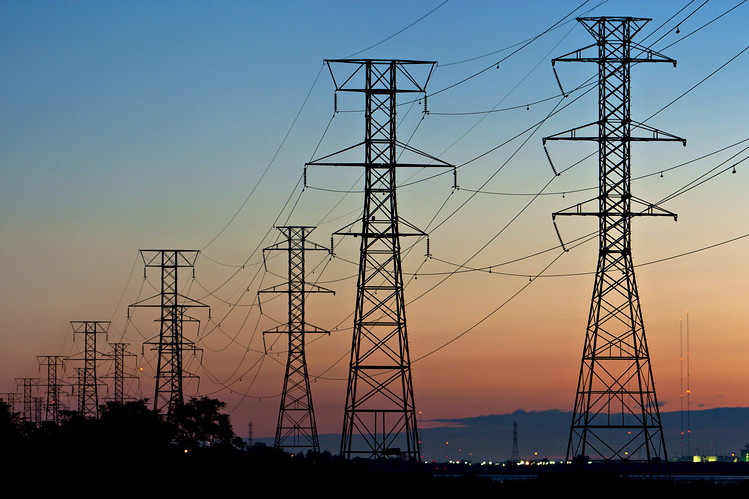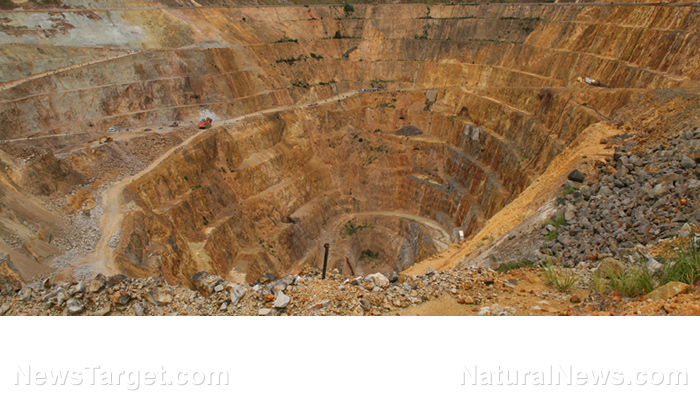Germany falls into RECESSION amid high energy prices and drop in consumer spending
06/02/2023 / By Cassie B.

Germany, home to Europe’s biggest economy, has now fallen into a recession as consumer spending drops in the wake of higher energy prices.
During the first quarter of the year, the company’s GDP dropped by 0.3 percent, following a contraction of 0.5 percent during the last quarter of 2022. This meant Germany met the definition of a recession, which is two successive quarters of economic contraction.
The economic downturn in Germany saw household final consumption expenditure drop 1.2 percent during the first quarter of the year, and higher energy prices are one of the main driving factors. Although energy prices were already on the rise when Russia first invaded Ukraine more than a year ago, the conflict has seen them hit record highs. Although the situation now appears to be easing somewhat, with inflation slowing in Germany in April, it still remains quite high at 7.2 percent.
Higher energy prices are affecting consumers and businesses alike, and households are also dealing with higher prices on everything from food and clothing to furniture. Car sales also dropped after government grants for hybrid and electric vehicles were reduced.
Grocery bills have risen 28.6 percent over 2021’s prices. Some categories of food have seen significant rises, with the cost of sunflower oil rising 73 percent and whole wheat flour climbing 70 percent. Beef prices are up 40 percent, pasta is up 48 percent, poultry has risen 33 percent, and the price of milk has risen 42 percent.
Germany’s Federal Statistical Office also revealed that 17 million German citizens were either close to poverty or officially living in poverty in 2021. This means they earn less than 60 percent of the population’s median income.
The country is also dealing with a severe worker shortage right now, with the Institute of German Economics reporting 630,000 vacancies last year across a broad range of industries including skilled trades, healthcare, the service sector and IT. This means that many employees are taking on greater workloads, leaving them feeling overworked and stressed.
Government crisis could be on the horizon
German Chancellor Olaf Scholz appears to be doing damage control, characterizing the economy’s outlook as being “very good” and drawing attention to government initiatives to attract foreign workers to the country and expand their production of renewable energy.
Speaking at a press conference in Berlin, he said: “There is a lot of investment in Germany in terms of battery and ship factories, which is increasing significantly, and we can therefore be confident.”
However, some economists are taking a different view, with Vice Chancellor and Economy Minister Robert Habeck warning that the country could face budget cuts of as much as 22 billion euros. He noted: “It’s the first time in many years that the federal budget is getting smaller, and … of course, the whole system is not attuned to that.”
With the country already on the brink of experiencing a government crisis, battles over how to address the current financial situation among the country’s trio of coalition partners are expected to be tense.
Meanwhile, the IMF is predicting that Germany will show the weakest performance among global advanced economies this year, shrinking by 0.1 percent.
However, the recession has been less severe so far than some predicted it would be at the beginning of the Ukraine conflict. The country’s relatively mild winter helped keep the impact of higher energy prices from being felt too deeply, while the supply chain issues that were seen during the pandemic have eased significantly. However, it was not enough to stop the country from entering a recession that could well lead to serious government turmoil.
Sources for this article include:
Submit a correction >>
Tagged Under:
big government, bubble, chaos, collapse, debt bomb, debt collapse, economic riot, energy prices, energy supply, Europe, finance riot, fuel supply, Germany, inflation, market crash, money supply, panic, power, recession, risk
This article may contain statements that reflect the opinion of the author
RECENT NEWS & ARTICLES
NewEnergyReport.com is a fact-based public education website published by New Energy Report Features, LLC.
All content copyright © 2018 by New Energy Report Features, LLC.
Contact Us with Tips or Corrections
All trademarks, registered trademarks and servicemarks mentioned on this site are the property of their respective owners.




















